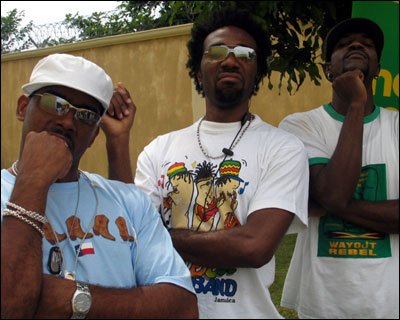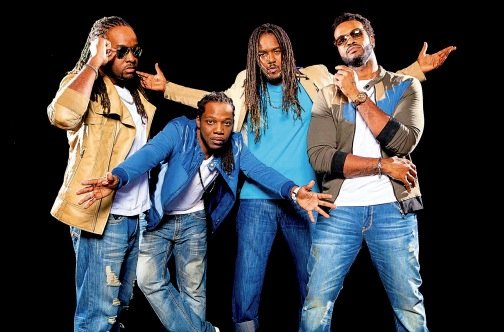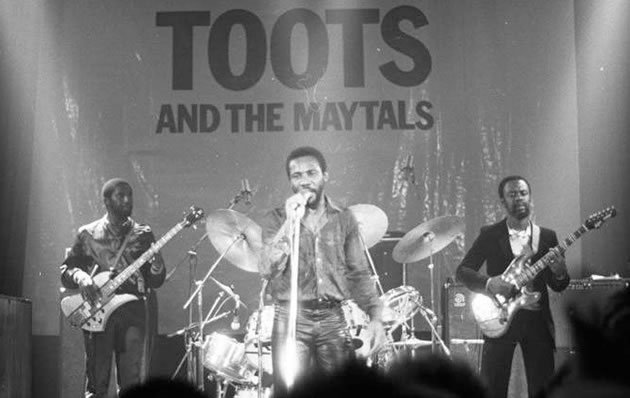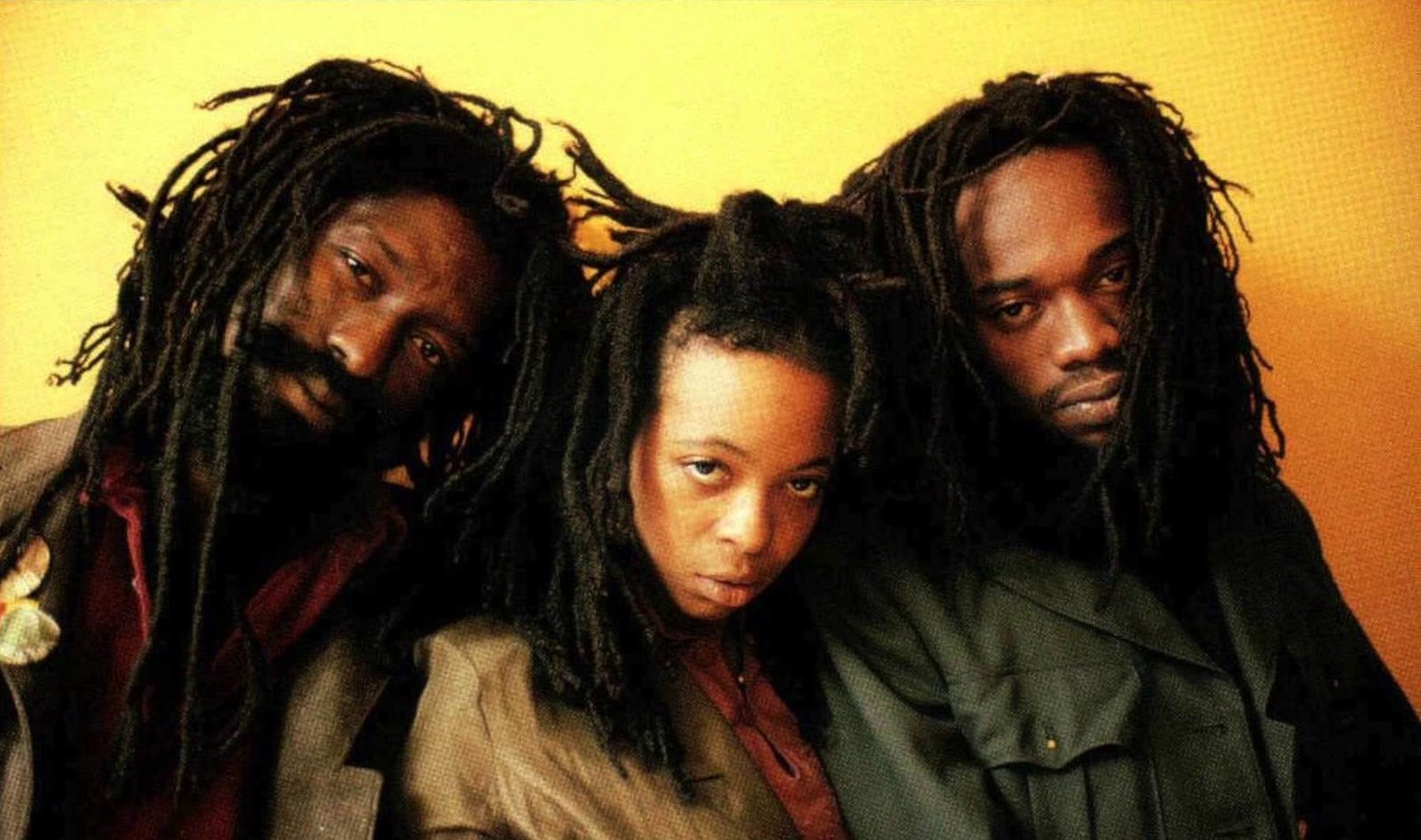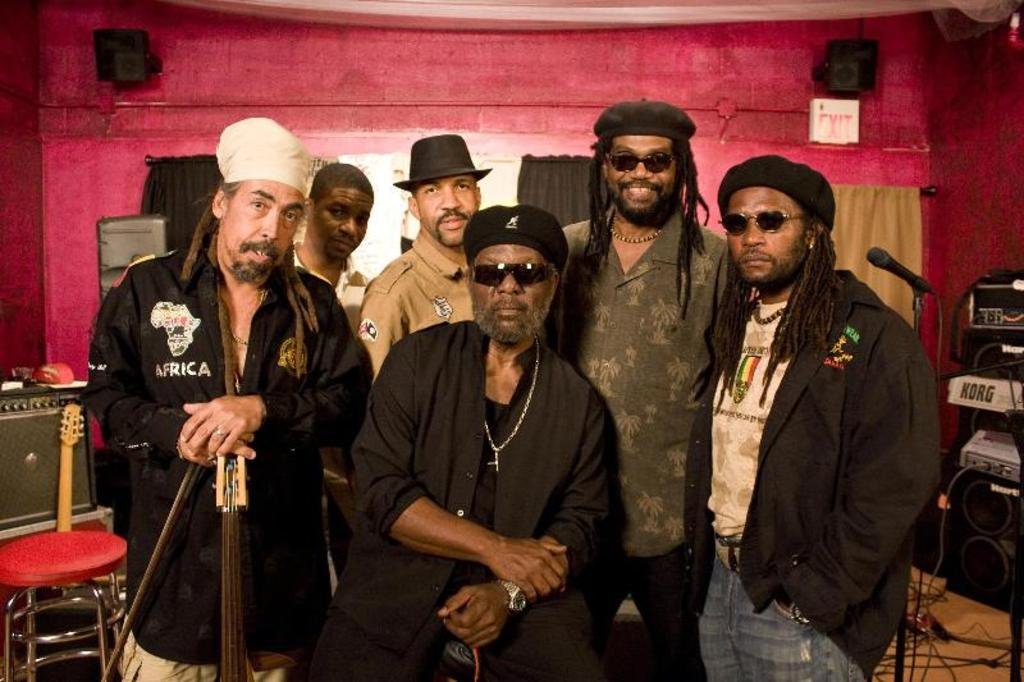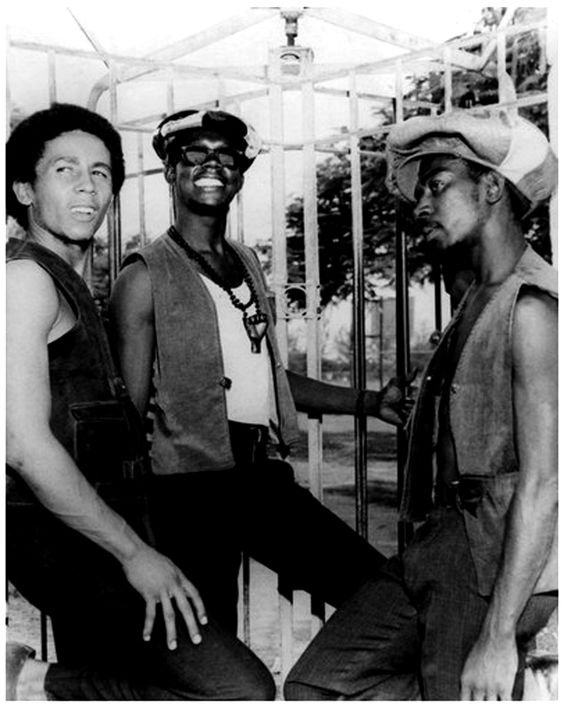One person making great music is always a pleasure to hear, but it’s even more amazing when a group of individuals can come together and harmonize to create that ideal melody music lovers with relax, nod or dance to.
Jamaica has provided us with a number of bands and groups who carved lasting legacies for themselves within the industry; some standing the test of time to give us momentous live and studio recorded songs, others which lasted for too short a time, but offered a long list of classics that we continue to play today.
For this list, we will not be including super groups, so the Alliance and The Skatalites – which have consisted of a plethora of top name solo acts and several sub groups – will not be featured, not will it feature legendary groups formed outside of Jamaica, such as Steel Pulse and Aswad. Additionally, this list also focuses more on impact on the music industry locally and internationally and not necessarily longevity.
To show you how tough a list this was to compile, great bands/groups such as The Heptones, Chaka Demus and Pliers, The Abyssinians, Ward 21, Michigan and Smiley, Sly and Robbie and Morgan Heritage did not make the cut, but are honourable mentions. Here’s the top 10:
10. Voicemail – The concept of a dancehall group did not evolve until the genre became popular in the 1990s; with units such as T.O.K, Scare Dem Crew and Innocent Kru being the first ones to receive any real acclaim.
Unlike those groups, which mainly focused on girl and ‘badman’ songs during that era, a talented trio by the name of Voicemail – comprising of Craig Jackson, Kevin Blaire and O’Neil Edwards – changed the game in the new millennium with their dance-infused themes that made the masses have a Jiggy Time and do the Gangsta Rock. They were the first local group to really focus on up-tempo dance music that appealed to music lovers of various age groups as kids and older folks were grooving to classics such as Ready To Party, Wacky Dip and countless others; becoming huge hits in Jamaica, Europe and Japan in the process. They made dancehall fun and their collaborations with the likes of Bogle, Ding Dong, Ovamarz and other dancers added the believability to what they were doing.
Unfortunately, the group’s fortunes took a very tragic turn on May 12, 2010 as Edwards was shot several times in a robbery outside his house in Duhaney Park and died two weeks later from his injuries. His sudden death was a huge shock to the system for the surviving members of Voicemail and industry as a whole; leaving a hole in the group that could never be replenished. Though Jackson and Blaire have kept on going, Voicemail never been able to recapture the momentum or flair they displayed with Edwards. But for the seven years the trio were together in the mainstream, they left an indelible legacy that future groups will find tough to match.
9. Mighty Diamonds – Active since 1969, the Mighty Diamonds – comprised of Donald “Tabby” Shaw, Fitzroy “Bunny” Simpson and Lloyd “Judge” Ferguson – were originally called The Limelight, but were renamed the Mighty Diamonds in the 1960s after Shaw’s mother referred to the trio as ‘diamonds.’
Perhaps we should give her credit for the foresight, because the band produced several gems, especially in the 1970s with timeless hits such as Right Time, I Need a Roof, Country Living and Pass The Kouchie – later remade by British group, Musical Youth as Pass The Dutchie – to name a few. Virgin Records signed the trio in 1976, with their debut album under the label, Right Time earning acclaim in the United States and United Kingdom.
Also renowned for their top quality live performances, they continue to tour nearly five decades after forming; having long cemented their legacy as a game changing band that impacted and inspired within the music industry worldwide.
8. The Paragons – Before John Holt became a legendary solo act, he was one of the driving forces of The Paragons, which consisted of Holt (who replaced original member, Leroy Stamp), Bob Andy, Garth ‘Tyrone’ Evans and Howard Barrett (who replaced Junior Menz).
The band combined elements of ska and rocksteady that both covered classics from overseas acts and crafted original material that became popular the world over. Hits such as On The Beach, Change Your Style, Left With a Broken Heart and others were punctuated by the group’s mesmerizing melody and indelible chemistry as they just seemed to click with each other from the jump.
One song in particular, The Tide is High gained the band huge international acclaim. Written by Holt, the song was later remade by American rock band, Blondie in 1980 and U.K. group Atomic Kitten in 2002; the former topping the U.S. and U.K. charts while the latter topped the U.K. singles chart. It helped launch Holt’s solo career while Andy also found strong success on his own, particularly with the chart-topper, Young, Gifted and Black alongside Marcia Griffiths.
7. T.O.K – Though reggae bands were ample since the ska era, a dancehall group was legitimately an unheard of concept until four friends at Campion College came together in the early 1990s to form a group that would gain much international acclaim – Xavier “Flexx” Davidson, Craig “Craigy T” Thompson, Alistaire “Alex” McCalla and Roshaun “Bay-C” Clarke.
Known as T.O.K, the quartet first positioned themselves as Jamaica’s first boy band – following a growing boy band trend in the U.S. that was captivating millions of music lovers – but later diversified their music and scored with the controversial Chi Chi Man, one of their first major hits. Their debut, My Crew, My Dawgs reached the U.S. Billboard charts in 2001 while earning platinum status in Japan, where they had a consistently healthy market.
Their subsequent compilation in 2005, Unknown Language produced the group’s two biggest hits to date – Gal Yuh a Lead and Footprints – which each cracked the Billboard Hot 100 chart and landed on BET’s 106 and Park countdown show and made them international superstars in the making.
Though more hits would follow, tension soon built within T.O.K. due to years of creative differences, with the quartet officially disbanding in 2015 to pursue solo careers.
6. Toots and the Maytals – Arguably the most popular ska and rocksteady group out of Jamaica, Toots and the Maytals (originally The Maytals) became fixtures on the international scene, particularly thanks to lead singer, Toots Hibbert, who was later named as one of the 100 greatest singers of all time by Rolling Stone magazine.
What made the group particularly successful was not just their melody or ability, but the fact they strove to be trendsetters. The band won Jamaica’s first ever Festival Song competition in 1966 with Bam Bam – later remade by Sister Nancy – and became instant stars as a result. Despite Hibbert serving an 18-month prison sentence for marijuana possession later that year, it did little to stop the group’s momentum and in 1968, the band made more head way for Jamaican music thanks to the track, Do The Reggay, universally credited as the song that introduced the reggae genre to the world.
The following year, their song, Monkey Man reached the top 50 of the U.K. singles chart while their features on Jimmy Cliff’s The Harder They Come movie soundtrack also proved successful, with the soundtrack being named as one of Vanity Fair magazine’s top 10 soundtracks of all time in 2007.
More success followed in the 70s and early 80s until the band disbanded in 1981. They would reunite a decade later and in 2005, the band won the Best Reggae Album Grammy award for their album, True Love which featured a host of top names across various genres, including Willie Nelson, Shaggy, Bonnie Raitt, Eric Clapton, Keith Richards and No Doubt.
5. Black Uhuru – Their sound was one of a kind, their blend of backgrounds was interesting and while their success was relatively short-lived, their impact was major and helped usher in a new era of reggae post Bob Marley.
The group, which took its name from the Swahili word for freedom (Uhuru) originally featured Garth Dennis, Don Carlos, and Derrick “Duckie” Simpson in 1972 but Dennis and Carlos ended up bolting to pursue solo careers shortly thereafter before joining The Wailing Souls. However, Simpson would strike gold with two quality replacements, Michael Rose and Sandra ‘Puma’ Jones; the latter an American who initially travelled to Jamaica to seek employment and first sang with the Sons of Negus.
The trio were in sync from the jump and recorded a string of hits including Guess Who’s Coming to Dinner, General Penitentiary, Anthem, Sinsemilla, What Is Life and Solidarity. It culminated in the band recording the classic album, Red in 1981, which charted well in the U.K. and was named as one of Rolling Stone magazine’s 100 greatest albums of the 1980s. Their next album, Anthem landed the band a historic feat as they won the first ever Best Reggae Album Grammy award in 1985.
Unfortunately, with international acclaim came tension and Rose left the group in 1984 after a falling out with Simpson, replaced by Junior Reid. In 1987, Jones was diagnosed with breast cancer as the band was set to record their next album. She continued with the band, but illness soon forced her to leave the group and she died from the disease in 1990 at the tender age of 36. These voids ultimately proved to be the group’s undoing despite many attempts to reform, but the mark they left on reggae music is everlasting.
4. Inner Circle – For any ‘inner circle’ of any type, the group has to be tight knit and function cohesively and that proved to be the case by the band of the same name, who formed in 1968.
With the original band consisting of Ian Lewis, Roger Lewis, Stephen ‘Cat’ Coore and Michael ‘Ibo’ Cooper, they found some early success as they covered local and American Top 40 hits, but had to survive much turnover as Coore and Cooper left in 1973 to join the newly formed Third World band – more on them later – as well as William ‘Bunny Rugs’ Clarke, who initially joined Inner Circle in 1970.
After surviving that mini-upheaval, the band needed a high quality lead vocalist and found one in 1976 in promising reggae singer, Jacob Miller, whose unique vocals added punch to the group. They found their groove with Miller thanks to their classic, Tenement Yard and followed up on this with Tired Fi Lick Weed Inna Bush and Stop Breaking My Heart.
Inner Circle’s heart, however, would soon be broken after Miller, only 27 years old at the time, died after injuries sustained in a car accident. It proved too much to bear and the group disbanded in 1980. However, in 1986, the band reformed and a year later, were rewarded for their persistence with their most popular efforts to date, Sweat (A La La La La Long) and Bad Boys; the latter becoming a pop culture phenomenon and a theme song to the American TV show, Cops and the Bad Boys movie franchise starring Will Smith and Martin Lawrence. The band earned a Grammy award for their Bad Boys album in 1994 and have never looked back as they overcame various forms of adversity to become internationally-recognized stalwarts.
3. Ziggy Marley and the Melody Makers – One of Jamaica’s most decorated bands ever, Ziggy Marley and the Melody Makers were formed at the behest of Bob Marley; one of his final wishes before his passing.
Consisting of Ziggy, Stephen, Cedella and Sharon Marley, as well as Erica Newell, the band brought its brand of peace-loving music that not only brought an appeasing sound, but pleasing messages to unite and grow the music and the world at large. Seeing bits of success at first with a more reggae-heavy sound, the band infused pop and electro sounds in their music, mixed with roots reggae and took off as a result. Their third album, Conscious Party turned out to be breakthrough project, reaching number 23 on the Billboard 200 albums chart and provided the hits Tomorrow People and Tumblin Down. In 1989, this album won the band its first of three Grammy awards.
One Bright Day, released five months after that Grammy win, produced hits such as Black My Story, Look who’s Dancing and more, landing them a second Grammy win in 1990 and also earned strong Billboard success. The band’s togetherness and ability to transcend pop culture made them beloved across the world and were one of the best live performing bands ever produced until disbanding in the early 2000s.
2. Third World – When Stephen ‘Cat’ Coore and Michael ‘Ibo’ Cooper left Inner Circle in the early 70s to form Third World, little did they know at the time that they would be revolutionizing the Jamaican music industry when they started.
Almost immediately, the band became a fixture around the industry with their roots reggae sound with tinges of other genres infused in their music, touring with The Wailers and were the backing band for the Jackson Five when they performed at the National Stadium in Kingston. Once Clarke and other came along, their momentum was boosted further, scoring with their album, 96 Degrees in the Shade and song of the same name.
Third World’s popularity grew even further in the 1980s after their album, Journey To Addis cracked the top 30 of the U.K. charts and their hits, Now That We Found Love (a cover of the O’Jays original song), and Try Jah Love garnered them acclaim in North America and Europe. They also famously performed alongside Stevie Wonder at Reggae Sunsplash in 1981 paying tribute to Bob Marley just months after his passing.
Despite numerous lineup changes over the years, the band never lost steam; continuing to drop hits such as Forbidden Love and Reggae Party. Though Clarke, the band’s lead vocalist for almost 40 years, passed away in 2014 due to cancer, they continue to tour and record, with A.J. Brown since slotting in that role. Music is in this band’s blood and their music continues to reverberate, especially due to their stage show presence as they are regarded as one of the best live bands across any genre all-time.
The Wailers – In 1963, three aspiring singers, Hubert Winston McKintosh (Peter Tosh), Neville Livingston (Bunny Wailer) and Robert Nesta Marley came together with the aim of creating a band that would help usher in a new era of Jamaican music. They more than helped; the trio started a revolution that put Jamaican music on the international map.
Teaming with legendary producer, Lee ‘Scratch’ Perry, the band helped bring the ska era alight with hits such as Simmer Down which topped the local charts, while dropping reggae classics such as Trenchtown Rock, War, Concrete Jungle and Get Up, Stand Up, earning the three stardom internationally as both their collective and individual talents received much recognition.
Marley’s talents, however, were particularly highlighted by Island Records head, Chris Blackwell as he aimed to turn Bob into a global star. This caused friction and bitterness within the group and in 1974, Wailer and Tosh left the band, leaving Marley to have to retool the band under his name; Bob Marley and the Wailers. Backed up by Junior Marvin, Al Anderson, Tyrone Downie, Earl “Wya” Lindo and Alvin “Seeco” Patterson as well as backing vocalists, the I-Threes (consisting or Rita Marley, Judy Mowatt and Marcia Griffiths), the band reached levels of international success no Jamaican group or solo act for that matter can attest to.
Too many hits to list, tens of millions of albums sold worldwide and so many memorable live performances, from Boston to Dortmund to Zimbabwe. Undoubtedly the best live band from Jamaica to ever grace a stage, Bob Marley and the Wailers provided more than just a musical experience, but created an atmosphere that made fans come together through their messages of peace, love and rebellion. Up until Bob’s death in 1981, they had the world eating out the palm of their hands and have set the gold standard many bands who’ve succeeded them since that period aspire to recreate.


